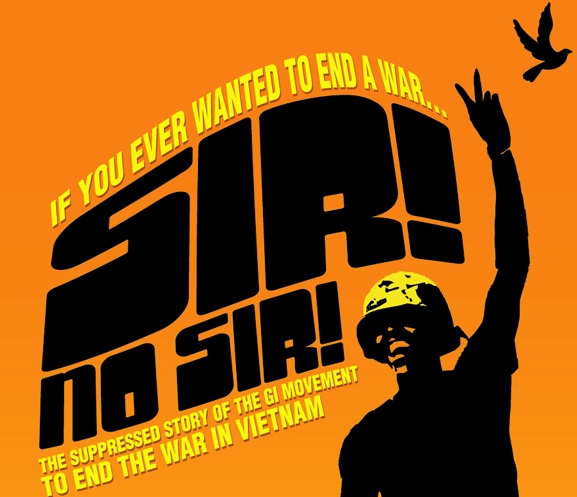
The suppressed story of the GI movement to end the War in Vietnam
“We truly believed what would stop that war was when soldiers stopped fighting it.”
Sir! No Sir! 12 Minute Trailer
During the Vietnam War, the Pentagon documented 550,000 “incidents of desertion”.
In the 1960’s an anti-war movement emerged that altered the course of history. This movement didn’t take place on college campuses, but in barracks and on aircraft carriers. It flourished in army stockades, navy brigs and in the dingy towns that surround military bases. It penetrated elite military colleges like West Point. And it spread throughout the battlefields of Vietnam. It was a movement no one expected, least of all those in it. Hundreds went to prison and thousands into exile. And by 1971 it had, in the words of one colonel, infested the entire armed services. Yet today few people know about the GI movement against the war in Vietnam.
Sir No Sir (2005) Complete Documentary Film (49:27)
Excerpts from the complete documentary (above):
“They were finally listening to us man. That’s the first time I can ever remember anybody listening to us while I was in the military.” (13:21)
13:30: “The commanding general of the 6th army—which was the jurisdiction—he said that they thought that the revolution was about to start and that they really had to set an example, you know, come down hard. And we were the guys that they decided to do that with. And they did. I mean we were on trial for our life. I kind of came in as an AWOL and within two days of hitting the [San Francisco Presidio] Stockade I was I was facing the death sentence for singing We Shall Overcome.”
35:24:“But then people decided to change it to Armed Farces Day because you know we thought making fun of your enemy was as valuable as yelling.”
This feature-length documentary focuses on the efforts by troops in the U.S. military during the Vietnam War to oppose the war effort by peaceful demonstration and subversion. It speaks mainly to veterans, but serves as a ready reminder to civilians that soldiers may oppose war as stridently as any civilian, and at greater personal peril.

